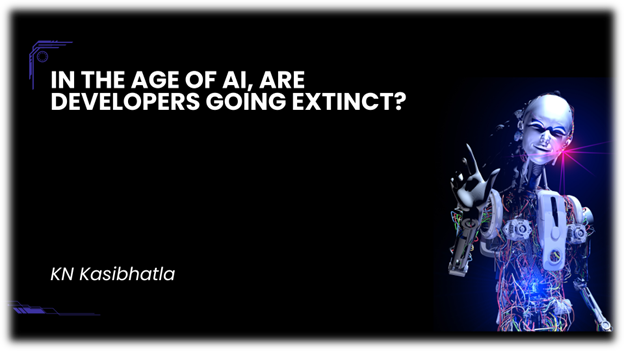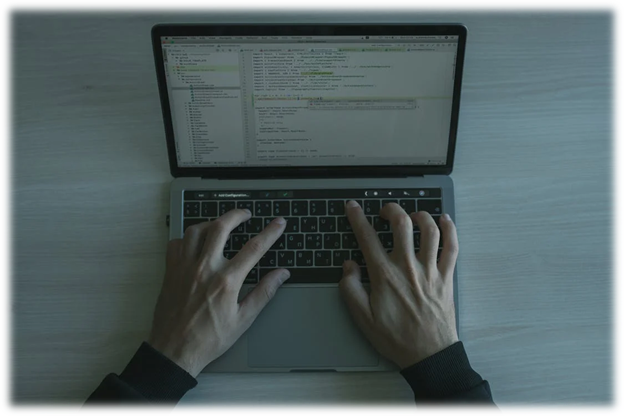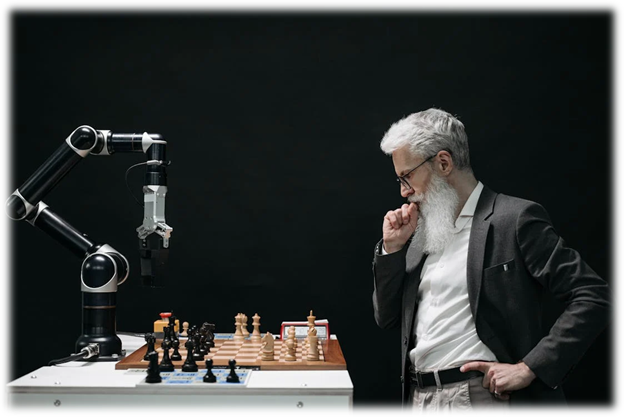
The advent of generative AI in software development has sparked intense debate about the future of human programmers. With tools like GitHub Copilot and ChatGPT demonstrating impressive code generation capabilities, some industry figures, including Matt Garman, have proclaimed “the end of developers.” However, this perspective overlooks the complex nature of software development and the historical context of technological advancements in the field. This essay argues that generative AI will significantly impact the software development landscape but will not render human developers obsolete. Instead, it will reshape their roles and potentially enhance their productivity and creativity.
Historical Context: We’ve been here
The notion that a new technology will render human developers obsolete is not new. We’ve encountered similar predictions and discussions in the past:
The UML Parallel
It’s helpful to draw parallels with past technological advancements in software development to understand the current situation. One notable example is the introduction of the Unified Modeling Language (UML) in the 1990s. UML was hailed as a revolutionary tool that would automate significant portions of the software development process, potentially reducing the need for traditional coding.
The Promise of UML
UML offered a standardized way to visualize software architecture and design. Its proponents argued that developers could automatically generate substantial portions of code by creating detailed UML diagrams, streamlining the development process, and reducing the need for manual coding.
Reality Check
While UML has become a valuable tool for software design and communication, it still needs to replace traditional coding or eliminate the need for skilled developers. Instead, it became another tool in the developer’s toolkit, enhancing their ability to conceptualize and communicate complex software structures.
Low-Code/No-Code Platforms
More recently, low-code and no-code platforms have emerged, promising to democratize software development and reduce the need for traditional coding. While these platforms have made it easier for non-developers to create simple applications, they haven’t eliminated the need for professional developers. Complex, scalable, and highly customized solutions still require the expertise of skilled programmers.
Previous AI Waves
The current AI boom is not the first time artificial intelligence has been hyped as a potential replacement for human developers. Expert systems in the 1980s and various forms of automated code generation have come and gone, each time failing to live up to the most extreme predictions of human obsolescence.
The Current Landscape: Generative AI in Coding
Generative AI tools for coding represent a significant leap forward in automating certain aspects of software development. These tools can:
- Generate code snippets based on natural language descriptions
- Autocomplete code as developers type
- Suggest refactoring options and bug fixes
- Generate documentation and comments

The Promise of Generative AI
Proponents of generative AI in coding, including some industry leaders, argue that these tools will dramatically reduce the need for human developers. They point to AI’s ability to generate functional code quickly and accurately, potentially outperforming human programmers in certain tasks.
The Unique Value of Human Developers
While AI, including large language models and code generation tools, has made impressive strides in assisting with coding tasks, there are several key areas where human developers continue to provide irreplaceable value:
- Problem-Solving and Creativity:Software development involves solving complex, ill-defined problems. Human developers excel at understanding nuanced requirements, thinking creatively to devise innovative solutions, and making judgment calls requiring contextual understanding and real-world experience.
- Architectural Design:Designing robust, scalable, and maintainable software architectures requires a holistic understanding of systems, business needs, and long-term consequences. This high-level thinking is still firmly in the domain of human expertise.
- Ethical Considerations and Responsibility:As software increasingly impacts critical aspects of our lives, ethical considerations in development become paramount. Human developers are essential for making ethical decisions, ensuring fairness, and taking responsibility for the systems they create—something AI cannot do.
- Adaptation to New Technologies:The tech landscape is constantly evolving. Human developers have repeatedly demonstrated their ability to adapt to new paradigms, frameworks, and methodologies. This flexibility and capacity for continuous learning are uniquely human traits.
- Collaboration and Communication:Software development is a deeply collaborative process involving stakeholders from various backgrounds. Human developers are crucial in bridging the gap between technical and non-technical team members, a nuanced skill AI has yet to master.
- Quality Assurance and Debugging:While AI can assist in identifying specific bugs, thoroughly testing software, understanding edge cases, and debugging complex issues, it still relies heavily on human intuition and experience.
- Domain Expertise:Many software projects require a deep understanding of specific industries or scientific domains. Human developers often combine technical skills with domain-specific knowledge, a combination that’s challenging for AI to replicate.

The Symbiotic Relationship Between AI and Developers
Rather than viewing AI as a replacement for developers, it’s more accurate to see it as a powerful tool that enhances developer productivity and capabilities:
- Code Generation and Autocomplete:AI-powered tools can suggest code snippets, complete functions, and even generate boilerplate code, allowing developers to focus on more complex aspects of their work.
- Bug Detection and Code Review:AI can help identify potential bugs, security vulnerabilities, and style inconsistencies, augmenting human code review processes.
- Natural Language Processing:AI’s ability to understand and generate natural language can help translate high-level requirements into initial code structures, which still require human refinement and validation.
- Optimization and Refactoring:AI can suggest optimizations and assist in refactoring code, helping developers maintain and improve existing codebases more efficiently.

The Evolution of the Developer’s Role
As AI continues to advance, the role of developers will undoubtedly evolve. However, this evolution is likely to elevate the profession rather than eliminate it:
- Higher-Level Problem Solving:Developers will likely spend less time on routine coding tasks and more on high-level problem-solving, system design, and strategic thinking.
- AI Integration Specialists:A new class of developers specializing in integrating and fine-tuning AI systems within software applications will likely emerge.
- Ethical AI Development:Developers will ensure AI systems are developed and deployed ethically, focusing on fairness, transparency, and accountability.
- Interdisciplinary Collaboration:As software becomes more complex and intertwined with various domains, developers will increasingly collaborate with experts from other fields, synthesizing knowledge to create innovative solutions.
Conclusion
The introduction of generative AI in coding represents a significant shift in the software development landscape, but it does not spell “the end of developers.” Much like UML and other technological advancements, generative AI will become another powerful tool in the developer’s arsenal, enhancing productivity and allowing for greater focus on complex problem-solving and innovation.
The history of software development has shown that new tools and technologies often augment rather than replace human skills. Developers who adapt to these changes, learning to work effectively with AI tools while honing their unique human capabilities, will continue to play a crucial role in shaping the digital world.
As we move forward, the most successful developers will be those who embrace AI as a collaborator, using it to handle routine tasks while focusing on the aspects of software development that require human creativity, critical thinking, and emotional intelligence. The future of software development is not about AI replacing developers but about humans and AI working together to create more innovative, efficient, and impactful solutions than ever before.
